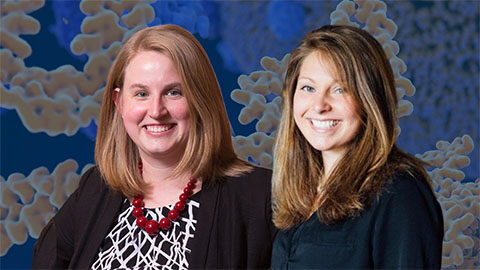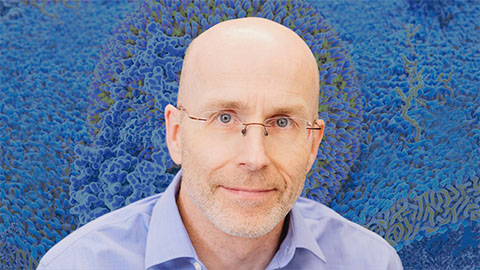
A good place to live and to study cancer
After completing my postdoctoral training at the University of California, San Diego, I received an attractive offer to work in San Antonio. I am now an associate professor in the molecular medicine department at the University of Texas Health Science Center at San Antonio.

Dynamic control of enhancer repertoires drives stage-specific transcription during tissue development and disease progression. My lab’s overall objective is to gain a fundamental understanding of the regulations of enhancer dynamics in response to signaling and their effects on gene regulation, leading to innovative approaches to prevent and treat enhancer-related diseases, especially cancers.
I wanted to work in this city for several reasons. First, Texas offers substantial start-up funding for researchers across various disciplines to study cancer. As a new PI who recently concluded postdoctoral training and was recruited as a tenure-track faculty member, I received a $2 million start-up grant from the Cancer Prevention and Research Institute of Texas, known as CPRIT. Also, San Antonio is a military city and many people choose to stay after retiring. This ensures abundant clinical resources for researching aging and cancer.
San Antonio also has historical significance and is a vibrant tourist destination, with attractions such as the River Walk and the Alamo. As the seventh-largest city in the U.S., San Antonio offers the advantages of a major urban center while providing a high quality of life due to its affordability and favorable traffic conditions.
My wife is also a PI, researching neuronal diseases. She and I have been immensely content working and living in San Antonio since we moved here from San Diego. Our two young daughters find a lot of fun things to do in this city. Besides working hard in the lab, we often take our daughters out to eat good food, visit the attractions and play at the SeaWorld or Six Flags amusement parks on weekends.
Submit an abstract
Discover BMB, the annual meeting of the American Society for Biochemistry and Molecular Biology, will be held March 23–26 in San Antonio. Abstracts for poster presentations and spotlight talks will be accepted through Nov. 30. See the poster categories and spotlight talk themes.
Enjoy reading ASBMB Today?
Become a member to receive the print edition four times a year and the digital edition monthly.
Learn moreGet the latest from ASBMB Today
Enter your email address, and we’ll send you a weekly email with recent articles, interviews and more.
Latest in People
People highlights or most popular articles

Redefining lipid biology from droplets to ferroptosis
James Olzmann will receive the ASBMB Avanti Award in Lipids at the ASBMB Annual Meeting, March 7–10, just outside of Washington, D.C.

Creating change in biochemistry education
Pamela Mertz will receive the ASBMB William C. Rose Award for Exemplary Contributions to Education at the ASBMB Annual Meeting, March 7-10 in Washington, D.C.

Amacher, Pollock named Henry Dreyfus scholars
They were recognized for their outstanding research scholarship and a deep commitment to undergraduate education and each received $75,000 to fund their research.

Trainee mentorship as immortality
Suzanne Barbour will receive the ASBMB Sustained Leadership Award at the ASBMB Annual Meeting, March 7-10 in Washington, D.C.

Life in four dimensions: When biology outpaces the brain
Nobel laureate Eric Betzig will discuss his research on information transfer in biology from proteins to organisms at the 2026 ASBMB Annual Meeting.

Fasting, fat and the molecular switches that keep us alive
Nutritional biochemist and JLR AE Sander Kersten has spent decades uncovering how the body adapts to fasting. His discoveries on lipid metabolism and gene regulation reveal how our ancient survival mechanisms may hold keys to modern metabolic health.

